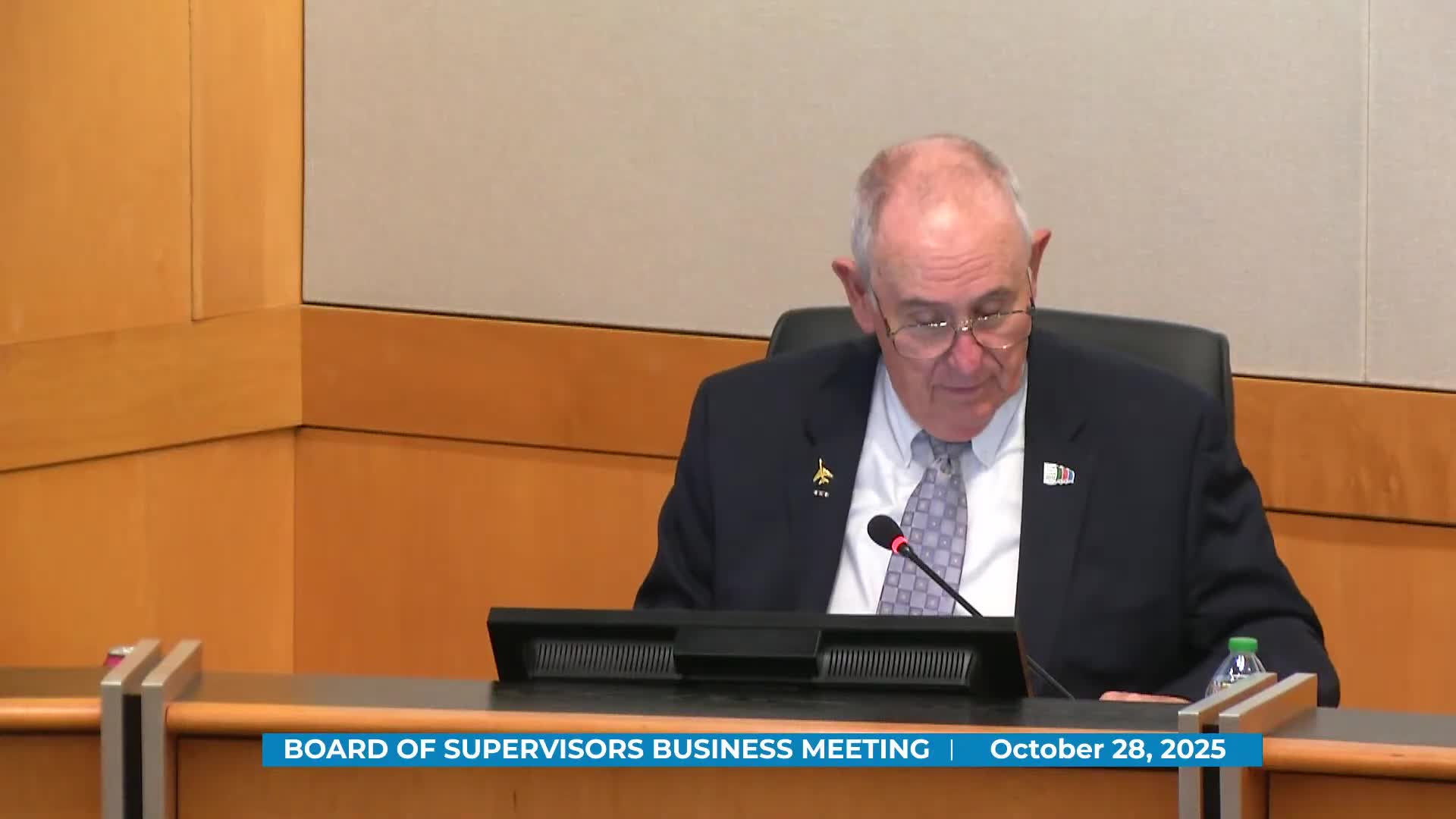James City County staff presents draft data center policy; board asks for field visits and tighter protections for nearby homes
Get AI-powered insights, summaries, and transcripts
Subscribe
Summary
County planning staff presented a draft policy to guide siting and mitigation of data center facilities. Supervisors discussed setbacks, water and power impacts, the possibility of community benefits, and asked staff to return with edits and recommended sites and to arrange field visits.
James City County planning staff presented a draft policy intended to guide local review of data center land-use applications, drawing questions from supervisors about setbacks, water and power use and how to protect nearby residential neighborhoods.
The draft policy, prepared after a September 9 zoning change that now requires a special use permit for data centers in the general industrial district, sets out expectations for site-specific conditions, construction management, fiscal impacts, location and design elements, noise, water and electricity consumption and possible adaptive reuse if a data center is later vacated. “Accordingly, staff has drafted a policy that attempts to mitigate expected land use impacts of data centers,” Planning staff Christie Parish said.
Board members urged stricter protections for homes near data centers. Supervisor McLennan said a 250-foot separation from residences “doesn’t really seem like that far away,” particularly where nearby housing is lower-income and may have fewer protections. Parish said the current draft uses a 400-foot buffer from “any occupied property” and a 250-foot buffer from historic resources but noted that the special use permit (SUP) requirement means the board would review individual cases and could set different conditions.
Supervisors also raised resource and equity concerns. Supervisor Hippel said he is concerned about very large water draws and noted that Albemarle County requires closed-loop water systems in some cases; Parish said other localities’ conditions were reviewed for the draft. Multiple supervisors flagged electricity rates and the risk of large industrial users receiving preferential rates “while homeowners are paying the top rates,” Supervisor Null said.
Several supervisors asked staff to return with more concrete siting options and recommended conditions. Supervisor Eisenhower suggested using sites away from neighborhoods — for example, on large industrial properties — and tying revenues or mitigation to nearby communities: “Maybe a percentage of that revenue would be for certain area around that center,” he said. Several members requested a board field trip to one or more operating data centers so members could observe noise levels and operations firsthand.
Staff said the draft is intended as guidance rather than strict ordinance language so it can be updated as technology and power-sourcing options evolve. “While further advancements and technologies are unknown, the policy used as a guide document allows flexibility when new sustainable resources are implemented for these facilities rather than strict performance standards within an ordinance,” Parish said. The board directed staff to incorporate feedback and return with a revised policy at a future meeting and to work with the county administrator to schedule educational site visits for the board.
No formal action or vote was taken on the draft policy at this meeting.
